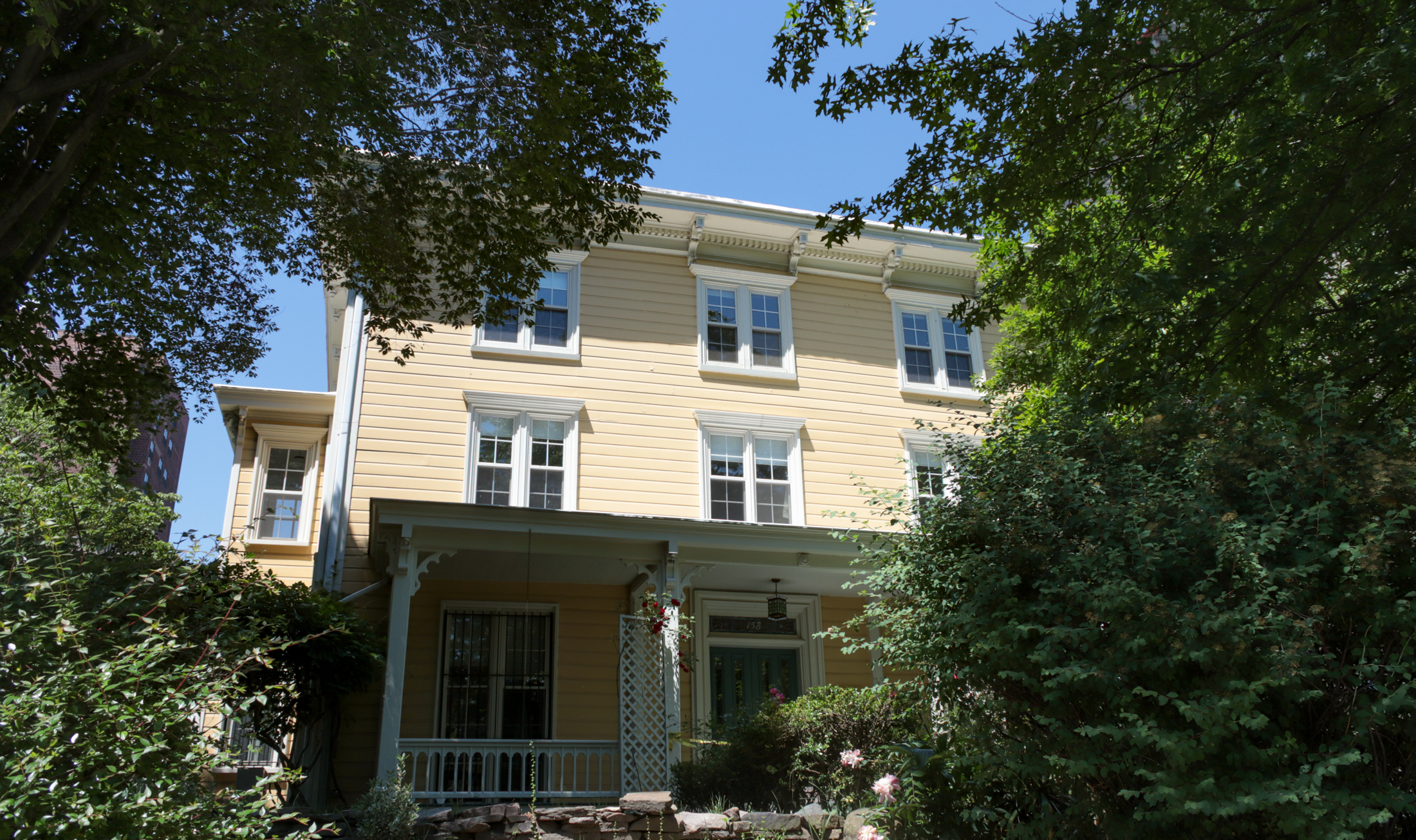Maybe Subprime Loans Aren't Pure Evil
For the past few months, barely a day has gone by without some newspaper or politician (or blog!) trumpeting the evils of sub-prime mortgages. The case is simple: Predatory lenders foist a complicated new kind of mortgage on a poor, unsuspecting victim which leads to foreclosure two or three years later when the rate ratchets…
For the past few months, barely a day has gone by without some newspaper or politician (or blog!) trumpeting the evils of sub-prime mortgages. The case is simple: Predatory lenders foist a complicated new kind of mortgage on a poor, unsuspecting victim which leads to foreclosure two or three years later when the rate ratchets up. An article in today’s New York Times, however, provides an interesting counterpoint to the hysteria. The article cites a new study conducted by Kristopher Gerardi and Paul S. Willen of the Federal Reserve Bank of Boston and Harvey Rosen of Princeton called Do Households Benefit from Financial Deregulation and Innovation? The Case of the Mortgage Market which makes the case that the enormous creativity in the mortgage market since 1970 has, on balance, been very favorable. As Professor Rosen explains, just because one is poor doesn’t mean you won’t make rational use of more creative mortgage products:
Our findings suggest that people make sensible housing decisions in that the size of house they buy today relates to their future income, not just their current income and that the innovations in mortgages over 30 years gave many people the opportunity to own a home that they would not have otherwise had, just because they didn’t have enough assets in the bank at the moment they needed the house.
Rosen also points out that clamping down on the newer mortgage products may end up hurting the very people everyone thinks they’re trying to protect.
‘Irresponsible’ Mortgages Have Opened Doors to Many [NY Times]





My point is not to make a sweeping statement. Renting is better than Buying… or Buying is better than renting.
My point is to say, Apples to Apples… you have to figure the numbers and determine which is better for YOU!
The previous poster makes that point by comparing a 2 br. Duplex in a Brownstone vs. Buying the 3 family browstone, collecting the rental income, paying the tax, mntnce, ins, etc. Which one makes for the better choice? I don’t know..
Maybe you’re a hedge-fund manager and you know for a fact you can achieve a 25% return on your money. If that’s the case, it wouldn’t make sense to buy a house when you can simply rent and invest the cash in your equity long/short fund.
David,
You’re trying to be a little too sophisticated for your own good. Apples to Apples my friend.
If that’s a 3 family brownstone you bought you’re getting no less than $2,700 in monthly rental income.
But if we want to make a case of it, (that I doubt other bloggers care to) we can.
So if you’re talking about buying 3 family brownstone in Bed-Stuy vs. renting a 2 bedroom duplex in a bed-stuy brownstone. I still maintain the numbers will not be such that it prohibits you from buying as opposed to your ability to rent that identical space.
And your point is correct only to an extent – as an owner you give up the LL risk (which may be ameliorated in rent stabilized apartments) and gain other risks – first and foremost is market risk – if you buy and the prices fall when you need to sell the cost of ownership could be exponentially higher then renting; you also have repair risks (which can also be astronomical in a private brownstone); risk of assessments, risk of tax increases, fuel cost increases (most rentals come with heat), not to mention being responsible for some or all maintainace (depending if it is Coop, Condo or private house).
Everything has its pluses and minuses and people have to objectively look at all of them. Renting can be a very sound financial as well as lifestyle choice for many people, and ownin can be potentially a financial nightmare. It all depends….
JoshK,
Again, I’m comparing apples to apples. Not putting a downpayment on your purchased home would cause you to pay PMI and maybe a higher interest rate. Therefore, if you compare apples to apples, meaning the same monthly outflow! (without getting technical) then you won’t be able to say renting “TODAY” makes more sense than buying a comparable space.
Annonymous you are right I figured the downpayment wrong it should be $190K ($165+25 closing) – I am not figuring 10% downpayment b/c that generally means a higher mortgage cost (your condo may accept 10% down but the bank generally doesnt)
–which means that at 5% you are losing about $800mo in interest which changes the calculation to $4500 a month to own or subtracting the equity as well= $3800.
If you are comparing this to a $3000mo rental it is (very conservatively) almost 10K a year (after taxes) more to own then to rent.
Sorry for the bad math above – but point is still the same.
Of course renting means that you are at the mercy of your landlord in terms of them raising your rent to cover their costs or selling their place to another owner who doesn’t want tenants or a whole myriad of other scenarios. My in-laws are people who subscribed to the rent forever credo and they are now in their 60s, moving again. No thanks. Coming from a family where renting is generally abhorred, I just can’t see it. Even considering that the cost of owing a home in brownstone or most other brooklyn is at the ceiling of prohibitive right now.
both of the above calculations are wrong: one doesn’t include downpayment and closing costs, and the other inflates it tremendously. Most coops allow 20% downpayment, and most condos 10%, so downpayment wouldn’t be anywhere near close to the $250k quoted. Then again not factoring in any downpayment – which at least you get to keep as equity – or closing costs – which you won’t ever see again and will have to ante up if you ever trade up/sell is also wrong.
Newstoner – sorry but you are way off – with todays inflated sales prices you’d be hard pressed to find a senario where a comparable apartment isnt cheaper to rent.
Your costs of ownership are wrong
Here is a VERY conservative analysis-
$650,000 mortgage = a monthly payment of $4300 ($3600 in int and $700 principal). and then you have taxes – which if you are 421(a) maybe will be $100mo (much higher if you arent exempt) If you are in a 35% bracket this will = $3105 mo payment, then you have to add maintainace which conservatively will=$500mo which puts you at $3605 plus ins (say $75mo), plus small painting/repair allowance ($25mo)= $3705
And then you of course forgot the thing that most forget – the cost of the cash equity = in this case say $275,000 which is $250K+25K in closing costs (low). At the 5% you could earn in a bank account you are talking $13,750 which is $1145 a mo = so grand total of ownership = $4850 a month – Even if you subtract out the equity that you are investing ($700 a month) it still costs you $1150 more to own then it does to rent – assuming prices stay constant.
Obviously if prices rise it will make ownership look better, if prices fall then renting will look even better then above.
“If it costs you $3,000, all in, to rent the apartment of your choice in NYC, then have to compare that to what size mortgage is comparable, ALL IN, in NYC. A $650K Mortgage +ins. +taxes+maintenance -LESS your tax writeoff benifit will put you around that same $3,000”
Exactly. My one bedroom apt. was going up to $2400 per month, and this did not include heat and hot water. With one baby in hand and plans for a second, a two or three bedroom was not far off at all. Quick math told us that a buy was going to make more sense than a rental.
Do you need a house, perhaps not everyone does, but NewStoner makes the smart point “So, in today’s low interest rate environment, you’ll be hard pressed to find an apartment that makes more sense to rent, than a comparable co-op,condo, or brownstone w/ tenants of the same size”